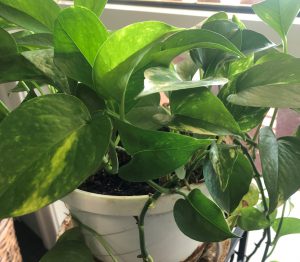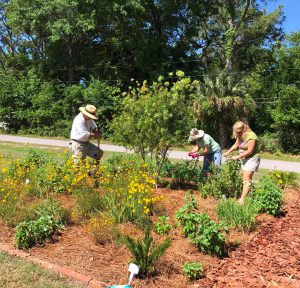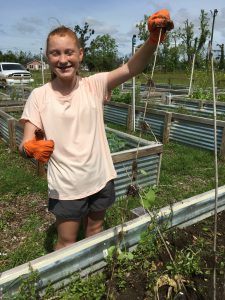
Some house plants are very easy to keep alive, even if you are a first-time gardener. Photo source: Melanie Taylor
As July begins, one mental health topic we repeatedly hear or read about is how stress is negatively affecting so many Americans right now. In these unprecedented times, many people are reaching out for guidance from their doctors, therapists, friends, and family. Depending on how your stress levels are affecting you, there are numerous suggestions ranging from exercise to therapy to medication and the list goes on. There may be one solution right at your fingertips that can help you begin to find a little peace of mind starting today. Gardening…. Let’s DIG IN!
Gardening does not have to be growing a large vegetable garden in the backyard. It can be planting flowers and plants in your landscape, maintaining potted plants on your front porch and deck, or growing houseplants inside your home. One easy way to start if you have never been a gardener is by growing herbs inside or out. Many people find gardening helps them escape to a place of peace as they dig in the soil and watch their plants and flowers grow and prosper.
This idea is not new. Horticulture is the art and science of growing plants. Horticultural therapy is the practice of engaging people in plant or gardening activities to improve their bodies, minds, and spirits. Research confirms that healthful benefits accrue when people connect with nature and plants by viewing and/or interacting with them.
Horticultural therapy has been around for a very long time. In the 1600’s, the poor often worked in gardens to pay for their medical care. Physicians quickly noticed these patients recovered faster and had better overall health than patients who did not work in the garden. Today, many hospitals, long-term care facilities, rehabilitation centers, prisons, schools, social-service facilities, and community centers use people-plant interactions as a form of treatment for persons with physical or mental disabilities. Horticultural therapy may include meeting with a therapist specializing in this area or trying something on your own or with family, friends, or a local gardening group.
Some benefits you may receive from gardening include:
- Physical: Provides exercise at various levels. (Easy, medium, and strenuous levels – it all depends on what you decide to create.)
- Emotional: Promotes and satisfies your creative side, increases your feelings of confidence and self-esteem, promotes a new interest and enthusiasm for it, and even relieves tension.
- Physiological: May help lower blood pressure and heart rate, decrease cortisol levels, and ultimately relieve stress.
Even if you think you do not have a “green thumb,” you should try gardening on any level and see if it will be a healthy mode of stress release for you. Happy Gardening!
Source:
UF/IFAS Extension EDIS Document ENH970: Horticultural Therapy, Elizabeth Diehl and Sydney Park Brown.
- Back to School Basics – The Importance of Prioritizing Sleep - August 28, 2024
- Let’s Go Walking – Celebrate National Walking Day – April 3, 2024 - April 1, 2024
- Busy days. Easy dinners. - March 8, 2023


